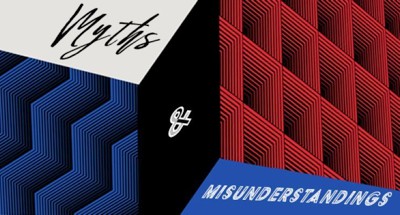Earlier this summer, comments on one of our Facebook posts sparked a larger conversation about recurring debates about the Civil War. We asked our visitors, social media audiences, and staff to generate a list of the questions or topics about the Civil War that they think are the most misunderstood. In providing answers to these, our goal is to do the research for you, consulting with primary sources, leading historians, and the latest scholarship, and distill it into something you can read quickly over a cup of coffee. Join us every other week for the next installment of this new blog series: Myths and Misunderstandings.
“Lincoln did not free a single slave.”
It may seem odd that such a statement has been made about the man considered by many to be the “Great Emancipator,” but the idea has its roots in Lincoln’s changing view of emancipation and a failure to realize the full impact of the Emancipation Proclamation.
In an 1864 letter to Albert Hodges, a Kentucky editor, Lincoln stated, “I am naturally anti-slavery. If slavery is not wrong, nothing is wrong…And yet I have never understood that the Presidency conferred upon me an unrestricted right to act officially upon this judgment and feeling.” Lincoln continued by laying out the circumstances that led to his issuing the Emancipation Proclamation.
As early as 1837, Lincoln had taken a stand, declaring slavery to be “founded on both injustice and bad policy” In 1854, speaking against the Kansas-Nebraska Act, Lincoln referred to the “monstrous injustice of slavery” before delving into colonization and gradual emancipation—two options that he would consider during his presidency.
That Lincoln saw slavery as a moral evil is obvious; that he believed slavery was an institution protected by the Constitution is equally true. The war and the overwhelming necessity of saving the Union gave Lincoln the justification he needed.
On January 1, 1863 (following a preliminary proclamation) Lincoln signed the Emancipation Proclamation, declaring it to be “a fit and necessary war measure.” It states that “all persons held as slaves within any State or designated part of a State, the people whereof shall then be in rebellion against the United States, shall be then, thenceforward, and forever free.”
But did the Emancipation Proclamation actually free any enslaved people?
Some historians claim that it only declared slaves free in areas where Lincoln lacked the power to free them. It is true that the proclamation exempted the Border States, as well as Tennessee and areas of Louisiana and Virginia occupied by Federal troops. However, this observation ignores the fact that the U.S. Army occupied parts of North Carolina, South Carolina, Georgia, Florida, Alabama, Louisiana, Mississippi, Arkansas, and Virginia, which were not exempted and where enslaved people did immediately become free.
As the U.S. army advanced and expanded its reach, more enslaved people came into its lines. In fact, historian and author William Harris estimates that more than one million enslaved people had been freed by the war’s end.
We also should consider the moral weight of the proclamation and the new direction it signaled.
Practically from the war’s commencement, enslaved people had taken it upon themselves to seize their freedom. The U.S. Army and Congress had taken incremental steps to deal with situation, but it was Lincoln’s proclamation that fully changed the focus of the war.
Roughly a month after the proclamation, Frederick Douglass declared in a speech, “The change in attitude of the Government is vast and startling…we can scarcely conceive of a more complete revolution in the position of a nation,” he said. “It will stand with every distinguished event which marks any advance made by mankind from the thraldom and darkness of error to the glorious liberty of truth.”
Even if one chooses to deny the impact of the proclamation, there is still Lincoln’s role in securing the passage of the 13th Amendment. Knowing that his proclamation was merely a war measure, Lincoln urged passage of an amendment ending slavery. He attempted to influence Congress not only in word but also in deed, employing political arm twisting and other forms of persuasion.
When the 13th Amendment finally passed Congress on January 31, 1865, Lincoln, though not required by law to do so, signed it. Shortly thereafter he declared, “[T]his amendment is a King’s cure for all the evils. It winds the whole thing up.”
In conclusion, Lincoln’s Emancipation Proclamation did, indeed, secure freedom for thousands of enslaved people. But even further, it enabled the United States government–in conjunction with the actions of enslaved people themselves–to definitively destroy slavery.
For further reading:
Allen Guelzo, Lincoln’s Emancipation Proclamation: The End of Slavery in America (Simon & Schuster; Reissue edition November 7, 2006)
Eric Foner, New York Times, “The Emancipation of Abe Lincoln” (2012, December 31)
William C. Harris, “After the Emancipation Proclamation: Lincoln’s Role in the Ending of Slavery” (North and South, 5, no. 1 [2001]: 42-53)
